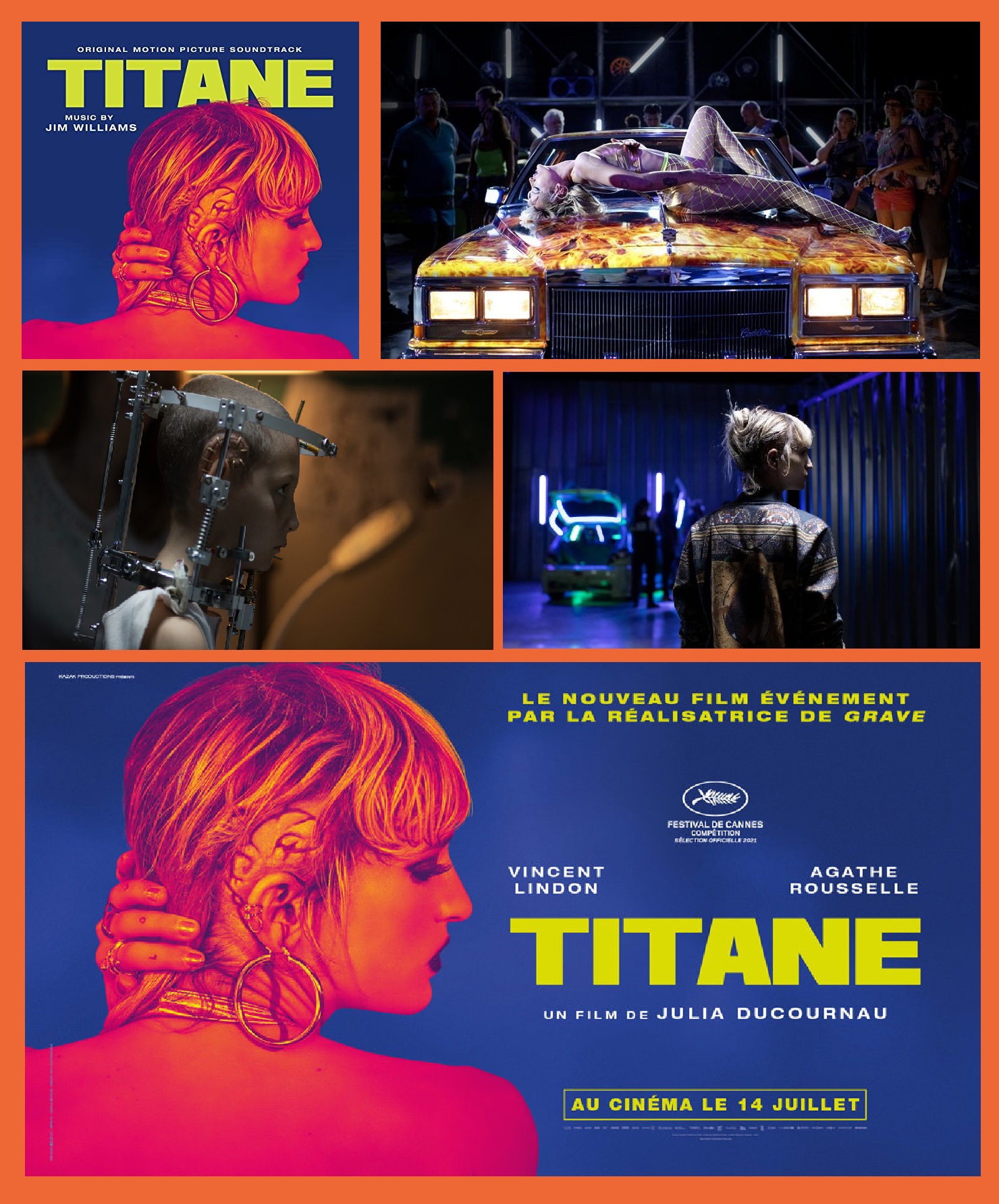Recent Watching: Titane
Last night, I watched the movie Titane on Hulu. I can say, with some confidence, that Titane is one of the stranger movies I have ever seen as well as one of the most uncomfortable to watch. I would put it in the same category as Mike Leigh's Naked and movies by Peter Greenaway like The Cook, the Thief, His Wife, and Her Lover. And, like Naked or The Cook, the Thief..., in addition to be challenging for the audience, Titane is certainly also a movie of considerable artistic achievement. Just be aware that if your idea of a good time when watching a movie is The Sound of Music, Titane is not the movie for you.
So, perhaps it would be best to begin by answering the question, what is Titane about? In the NYTimes, A.O. Scott begins his review with this summary:
Alexia is a strip-club dancer in the South of France whose hobby — her compulsion, her kink, her vocation — is murder. As the bodies pile up and the law seems to be closing in, she leaves the house where she lives with her parents and takes on the identity of Adrien Legrand, a boy who went missing many years before.
Having seen a computer-generated image of the teenager Adrien might have grown up to be, Alexia fashions herself into a plausible likeness, cutting her hair short, binding her breasts and smashing her nose against a bathroom sink. The disguise works well enough to convince the boy’s dad, Vincent, the ultra-manly commander of a fire-and-rescue squad. But there is a complication: Alexia is pregnant. The father, as far as we can tell, is a Cadillac with hydraulic suspension and a custom paint job. As the pregnancy progresses, Alexia starts to lactate petroleum.
I would say that Scott's summary is accurate. Titane is definitely an art movie rather than a straight entertainment movie. And the narrative is straightforward and easy to understand. But it does include a significant amount of body horror. If I may quote another critic to expand on how body horror is used in Titane, here is part of what Richard Brody has to say about the picture and its use of body horror in his review in the New Yorker.
“Titane” is a body-horror film that relentlessly displays the anatomical agonies its characters endure. Alexia has a large scar above her right ear, from the childhood accident and the surgery, and other markings left by her self-binding. Ducournau shows her attempting to perform an abortion on herself with the same hair needle she used as a murder weapon and, later, gashing the flesh on her belly to force her delivery and baring not muscle but metal. Elsewhere, she slams her nose with her fist and bashes it on a metal sink to change her appearance. The film’s explicitness about bodily fluids (including Alexia’s various discharges, which appear to be based not on water but on motor oil) and the ferocious physicality that’s onscreen throughout set the tone for the hectic intensity of the story. The commanding and combative Vincent, too, is self-punishing in his quest for strength, subjecting himself to agonizing injections into his bruised buttocks to overcome the ravages of age. (Lindon, both rumpled and buff, comes across as an irony-free version of Bill Murray.) More than that, the details of extreme physicality prove to be load-bearing elements in the drama, doing the work that dialogue and backstory don’t.
The picture, like most narrative, can be described as having three acts. The first act and most of the second act are bold and daring, but the story sags a bit in a third act, in my opinion -- and I have read several critics who agree with me on this point. But I do not think that people who choose to watch Titane are watching it for plot. People brave enough to watch the whole movie will be interested because the picture does something new and bold with the serial killer/body horror genre. I think Sheila O'Malley describes this idea well in her review on RogerEbert.com:
"Titane" is fascinated by the body's vulnerabilities and urges, its ravenous processes, and how the collective "we" attempt to deal with all of this, either by gorging ourselves or, conversely, by sublimating the need into other things. Neither process is pleasant and/or socially acceptable. You can't control the inherently uncontrollable. "Titane," this year's Palme d'Or winner at the Cannes Film Festival, is an extreme movie, violent and pitiless and funny, but the space it provides for not just tenderness but contemplation makes it an "extremely" thought-provoking film as well.



Comments
Post a Comment